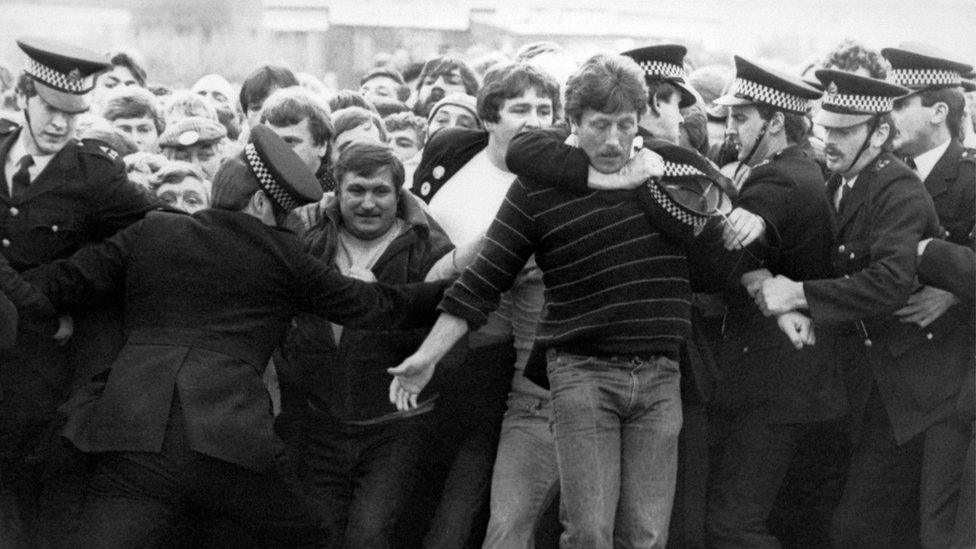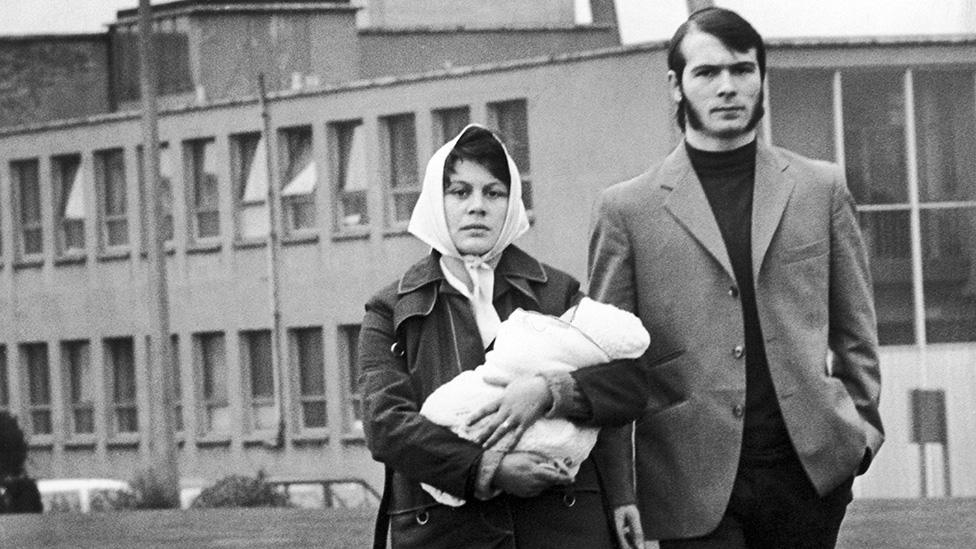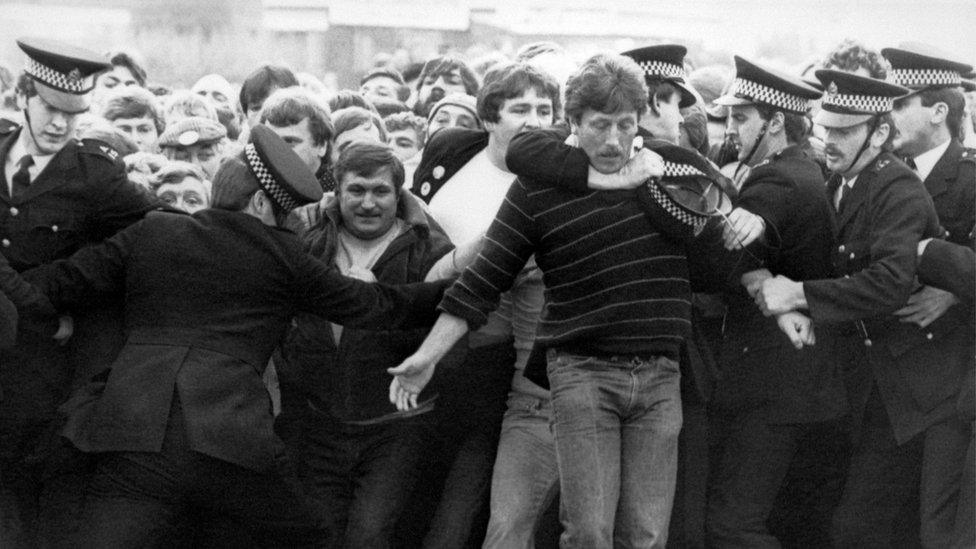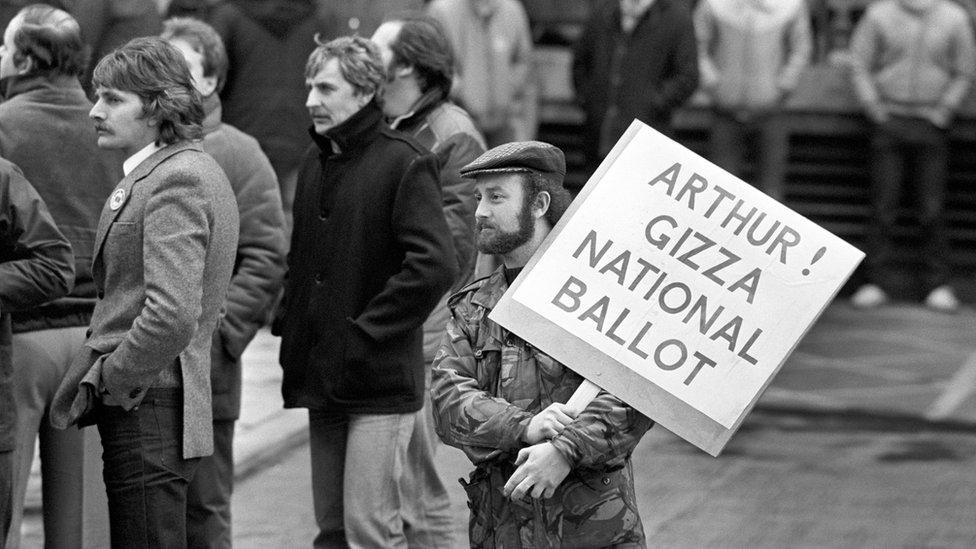Scottish miners convicted during strike to be pardoned
- Published

About 1,400 miners were arrested and more than 500 were convicted during the strike
A new bill to pardon miners convicted of offences relating to the strike action in the 1980s has been published by the Scottish government.
Justice Secretary Keith Brown said the legislation would go "some way" to aid reconciliation and to help heal wounds in mining communities.
About 1,400 miners were arrested and more than 500 were convicted during the national dispute.
The pardon will also apply to miners who have died since the 1984-85 strike.
The Miners' Strike (Pardons) (Scotland) Bill follows an independent review into the impact of policing on Scottish communities during the strike.
The review, led by human rights lawyer John Scott QC, recommended that the Scottish government introduced legislation to pardon miners convicted of certain offences, such as breach of the peace.
Mr Brown said the miners' strike had been one of the "most bitter and divisive industrial disputes in living memory".
"This new draft legislation will go some way to aid reconciliation - and to help heal wounds within Scotland's mining communities," he said.
"A collective pardon will restore dignity to those convicted, provide comfort to their families and, I hope, will bring closure to the sense of injustice members of mining communities may feel.
"I am determined to make swift progress on this matter, given the passage of time since 1984-85, which is why we have acted quickly to bring forward and publish this landmark new bill."
'Excessive and extreme'
However, former miner George Purcell, who was arrested at Bilston Glen Colliery in Midlothian during the strike, said the new legislation was a "token gesture".
"It [the pardon] maybe resolves one of the injustices that were laid against the miners, but it doesn't involve the financial loss - the major injustice that was put against miners that weren't reinstated," he said.
Mr Purcell was dismissed from his job after being convicted of breach of the peace and told BBC Radio Scotland's Lunchtime Live programme he had missed out on five years' of work and compensation when the colliery finally closed.
"We were involved in an industrial dispute to try and protect our communities and save jobs. We didn't think that the whole of the state machinery would be put against us," he said.
"When you think of a minor offence like breach of the peace over 37 years ago. Fined £400 and barred from going near the colliery... that was excessive and extreme."

George Purcell, pictured at Bilston Colliery in 1972, said the pardon amounted to a "token gesture" from the Scottish government
The bill will not cast doubt on decisions made by courts at the time and does not quash convictions.
Millions of people protested against pit closures during the industrial dispute with Margaret Thatcher's government.
Throughout the summer of 1984 there were violent clashes between striking miners and police, whose numbers often ran into several hundred at each confrontation.
Violence led to widespread use of the breach of the peace charge.
The review found that most of the miners' actions would be unlikely to result in prosecution today.
Related topics
- Published28 October 2020

- Published6 March 2019
